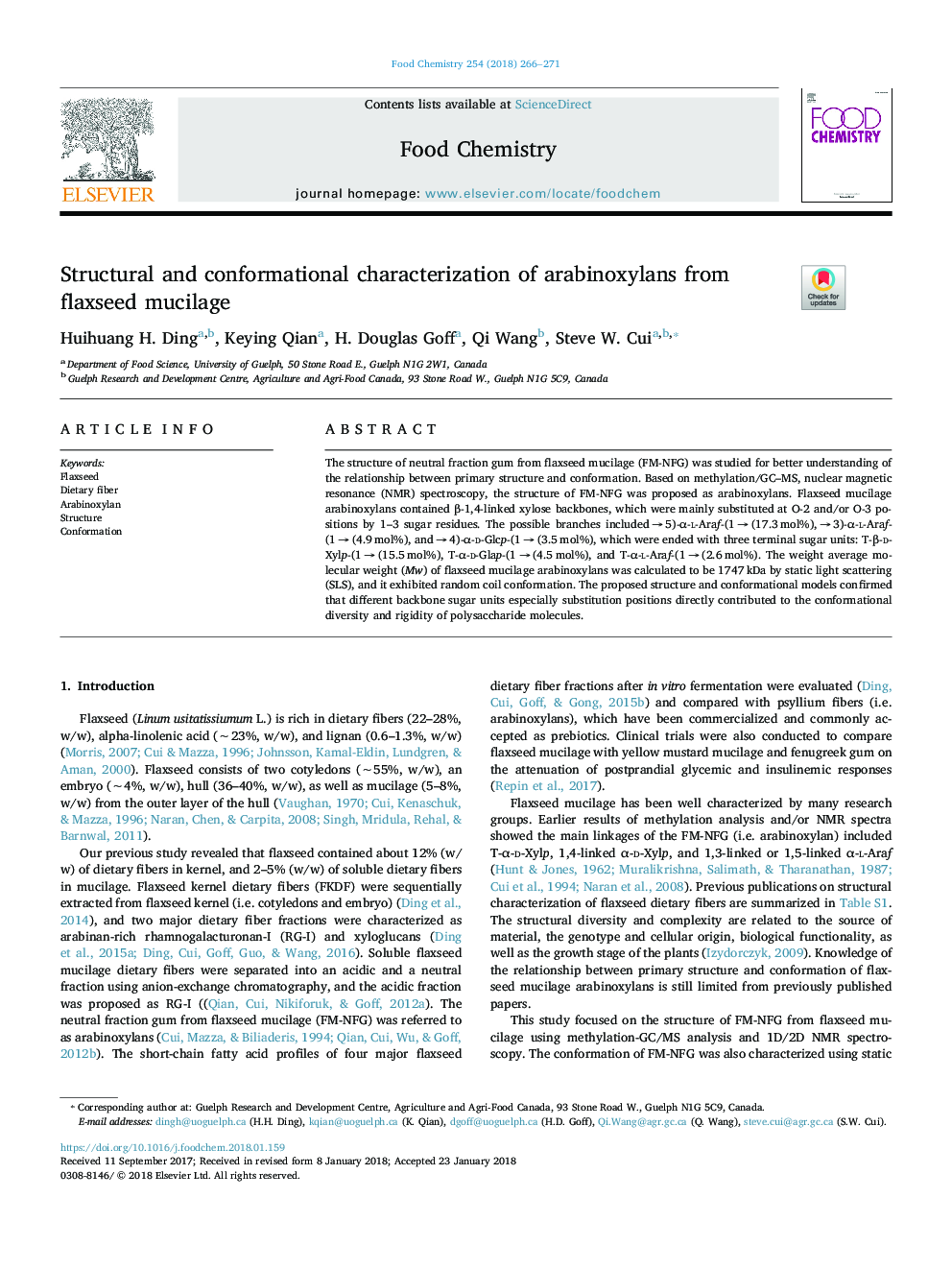| Article ID | Journal | Published Year | Pages | File Type |
|---|---|---|---|---|
| 7585524 | Food Chemistry | 2018 | 6 Pages |
Abstract
The structure of neutral fraction gum from flaxseed mucilage (FM-NFG) was studied for better understanding of the relationship between primary structure and conformation. Based on methylation/GC-MS, nuclear magnetic resonance (NMR) spectroscopy, the structure of FM-NFG was proposed as arabinoxylans. Flaxseed mucilage arabinoxylans contained β-1,4-linked xylose backbones, which were mainly substituted at O-2 and/or O-3 positions by 1-3 sugar residues. The possible branches includedâ¯ââ¯5)-α-l-Araf-(1â¯ââ¯(17.3â¯mol%),â¯ââ¯3)-α-l-Araf-(1â¯ââ¯(4.9â¯mol%), andâ¯ââ¯4)-α-d-Glcp-(1â¯ââ¯(3.5â¯mol%), which were ended with three terminal sugar units: T-β-d-Xylp-(1â¯ââ¯(15.5â¯mol%), T-α-d-Glap-(1â¯ââ¯(4.5â¯mol%), and T-α-l-Araf-(1â¯ââ¯(2.6â¯mol%). The weight average molecular weight (Mw) of flaxseed mucilage arabinoxylans was calculated to be 1747â¯kDa by static light scattering (SLS), and it exhibited random coil conformation. The proposed structure and conformational models confirmed that different backbone sugar units especially substitution positions directly contributed to the conformational diversity and rigidity of polysaccharide molecules.
Related Topics
Physical Sciences and Engineering
Chemistry
Analytical Chemistry
Authors
Huihuang H. Ding, Keying Qian, H. Douglas Goff, Qi Wang, Steve W. Cui,
